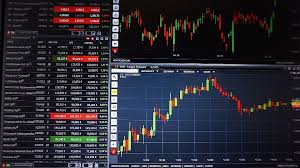
Forex prop trading has been gaining significant traction in the financial markets. This practice allows traders to use the capital provided by a trading firm to participate in market transactions. The rising interest in prop trading comes from the allure of reduced personal risk while potentially reaping significant rewards. Visitors can also check out forex prop trading Bangladeshi Trading Platforms to explore various options available in the region. In this article, we will explore the nuances of Forex prop trading, including how it works, its advantages and disadvantages, and what aspiring traders need to consider before diving into this exciting market.
What is Forex Prop Trading?
Proprietary trading, or prop trading, refers to the practice where firms trade financial instruments using their own money instead of clients’ money. In Forex prop trading, firms provide traders with the necessary capital, and in return, the traders share a portion of their profits with the firm. This setup allows traders to benefit from substantial capital without risking their own funds. It democratizes access to the Forex markets, enabling more individuals to participate in currency trading.
How Does Forex Prop Trading Work?
Typically, firms that engage in Forex prop trading will recruit aspiring traders through an application process. Successful candidates might undergo training or assessments to test their trading skills. Once selected, they are allocated a trading account funded by the firm. Traders use this account to execute trades in the Forex market. The profit-sharing model incentivizes traders to perform well while aligning their interests with those of the firm.
The Advantages of Forex Prop Trading
There are several advantages associated with Forex prop trading that attract both novice and experienced traders:
- Reduced Financial Risk: As traders use the firm’s capital, they are not financially liable for losses incurred while trading. This significantly lowers the risk associated with trading.
- Access to Professional Support: Many prop trading firms provide training resources, mentoring, and access to analytical tools, which can be invaluable for traders refining their strategies.
- Potential for High Earnings: Successful traders can earn a considerable percentage of the profits they generate, which can lead to lucrative returns compared to traditional jobs.
- Trading Restrictions: Prop traders often face fewer restrictions than retail traders, allowing them to employ advanced strategies and leverage.
Disadvantages of Forex Prop Trading
While Forex prop trading has enticing benefits, it is not without its downsides:

- Profit Sharing: Traders must share a percentage of their profits with the prop trading firm, which can diminish overall earnings.
- Pressure to Perform: Since many prop firms operate on a profit-sharing model, there is immense pressure on traders to generate profits consistently.
- Limited Control: Traders may have limited control over their trading strategies or risk management practices, as these may be dictated by the firm.
- Potential for Loss: Although traders do not risk their own capital initially, sustained underperformance can lead to being cut off from trading opportunities.
How to Get Started with Forex Prop Trading
For those considering entering the world of Forex prop trading, here are some important steps to take:
- Research Prop Firms: Look for reputable Forex prop trading firms. Read reviews and testimonials to ensure they have a strong track record.
- Understand Their Requirements: Each firm has its own set of criteria for selecting traders, including trading skill level, experience, and sometimes formal education.
- Prepare Yourself: Familiarize yourself with Forex trading through education. There are many online resources, webinars, and courses available.
- Practice Trading: Before joining a prop firm, consider trading in a demo account to hone your skills without risking any real money.
Selecting the Right Forex Prop Trading Firm
Choosing the right prop trading firm can significantly impact your success in Forex trading. Here are some criteria to consider:
- Trading Conditions: Assess the spreads, commissions, and leverage offered by the firm, as these can affect your trading profits.
- Support and Resources: Evaluate the level of support and educational resources provided to traders.
- Reputation: Investigate the firm’s history and reputation in the trading community. Look for reviews and feedback from current and former traders.
- Profit Split: Understand the profit-sharing structure clearly and ensure it aligns with your trading goals.
The Future of Forex Prop Trading
As technology continues to evolve, the landscape of Forex prop trading is likely to change. The advent of algorithmic trading, artificial intelligence, and machine learning will introduce sophisticated trading strategies and tools that can potentially enhance the profitability of prop trading. Additionally, the growing interest in trading among younger generations suggests that the practice of prop trading will continue to expand.
Conclusion
Forex prop trading presents a compelling opportunity for traders looking to enter the forex markets with reduced financial risk. By leveraging the resources and capital of prop trading firms, individuals can navigate the complexities of Forex trading more effectively. However, it is essential to weigh the pros and cons and choose a reputable firm that aligns with your trading aspirations. As much as prop trading can be a thrilling journey toward financial freedom, it also demands dedication, discipline, and an unyielding commitment to learning and adapting to market trends.
